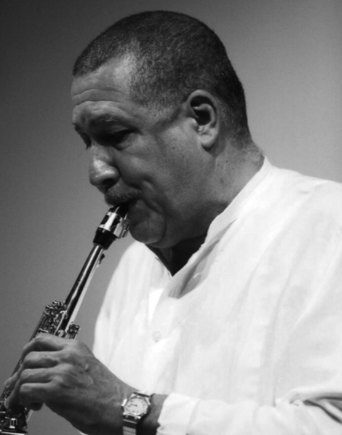"Some people say that they don’t study music because it gets in the way of their creativity. I don’t agree. I’ve never heard a doctor say that he decided not to go to medical school because he wanted to be more creative when he operated on your liver. Music is no less than that."
Excerpt from Paquito D'Rivera's Lesson: Working on Tunes
When I’m studying a tune and working on the chord changes, I never think of scales. I think more in terms of thirds, and I relate to the notes in the chord rather than what scale would apply to that chord. I first learned to improvise by ear and I didn’t analyze what I was doing. I just hear the melody and the chords and then I just play naturally. When I’m playing a song that I know, I just play. It’s difficult to explain the process. I don’t see the chords in my head. I can’t think of ii–V–I’s. If I had to explain to you the harmonic structure of a tune by memory, I don’t know what I would say to you. I’d really have to think about it because I’m not conscious of that when I play.
If you sat down at the piano and played me a ii–V–I in the key of C (Dm7–G7–Cmaj7) I would hear a line, I would hear a melody over those changes. I think in terms of music, not letters or numbers. I know how the system works, but it’s not in my system! I always think in terms of what something sounds like, rather than what it looks like. If I’m playing a tune and the piano player is voicing a chord with some alteration that is different than what I’m playing, I hear and feel that it’s not right. I wouldn’t say to him, “You’re playing major 9th on that chord when I’m playing the flat 9th.” I would just play him the note that I didn’t want him to play. If I stopped and thought about it and analyzed what was going on, I might communicate in a more theoretical way, but it’s not in my nature.
Don’t misunderstand what I’m saying: you want to know and understand as much about music and theory as you possible can. I just learned to play in a different way. Some people say that they don’t study music because it gets in the way of their creativity. I don’t agree. I’ve never heard a doctor say that he decided not to go to medical school because he wanted to be more creative when he operated on your liver. Music is no less than that. I believe a student should strive to learn as much as he or she can, but the student also has to realize that in order to be successful, eventually you have to develop your own way of doing things.
My father was a classical saxophone player, but he had some friends who were jazz musicians that helped me from time to time. But most of what I learned about jazz I learned by myself, from listening to other people. I would transcribe and memorize Charlie Parker and Dizzy Gillespie solos, but I never wrote them out. As a result, I never studied jazz in an academic way. I know what a Dorian mode is; but when I’m playing, I never think in those terms. Even though I can see the benefits of being more analytical when I play, it’s just not in my nature. When I am forced to think about what I am doing, I usually play better. For example, if I’m in the studio and I have to record a tune that I am not familiar with and I have to read the changes, I always play a great solo. Sometimes I think I sound better doing that than when I’m playing a song I know really well!
For Paquito D'Rivera's complete lesson plus musical examples, including a CD of Paquito playing those examples, plus five more incredible lessons by other great artists, you just gotta pick up Master Lessons For The Creative Musician.
For more information about Paquito D'Rivera check out his website.

